‘Dounia’: A Story of Hope Emerging from Lebanon’s Economic Crisis
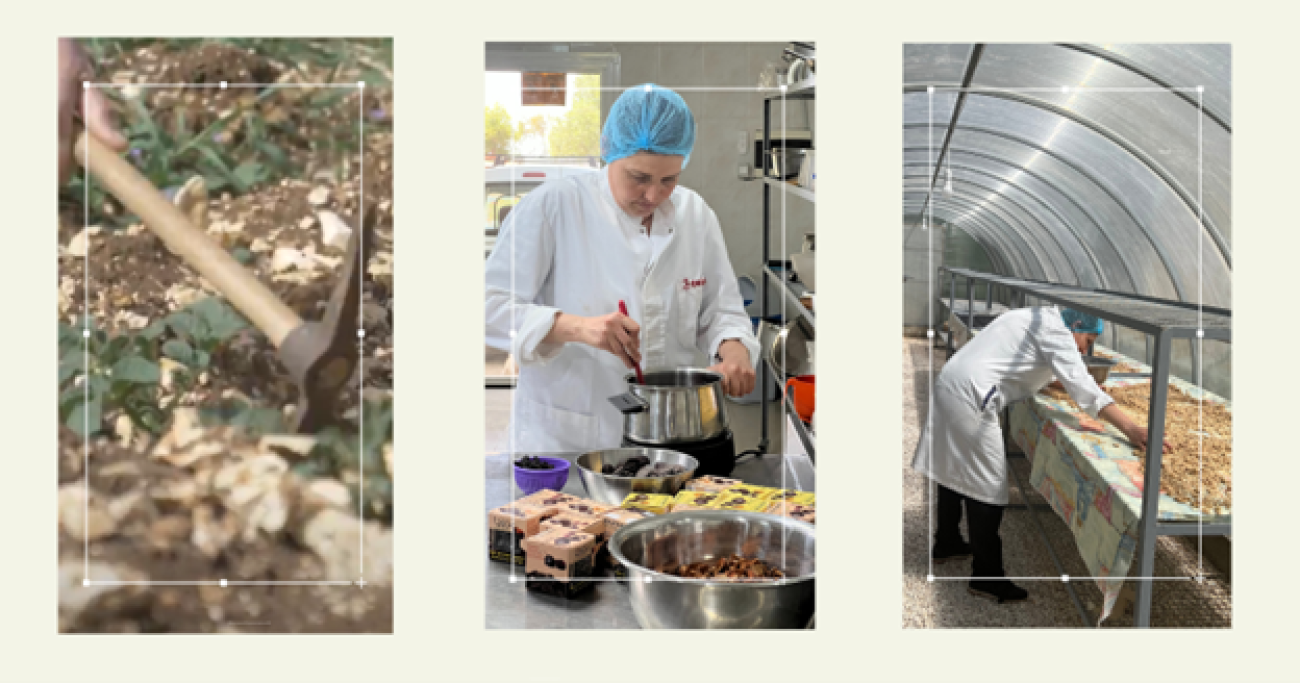
Learn about the impact of the UN Productive Sectors Development Program through this human-centered story.
‘We give our land so that it gives us back generously’
– says Dounia Bassil, an agricultural engineer and founder of Jouzourna small enterprise based in Smar Jbeil specializing in vegan, bio-pantry, and gluten-free products, as she describes her solid deep-rooted attachment to her land.
When Dounia registered for a UN training on accounting and business management back in 2020, she did not know that it would mark a turning point in her career. Dounia, who started a small farming project at a time when she lacked manufacturing skills and appropriate equipment that allow her to produce organic products, has now guaranteed herself a place among vegan-food producers in Lebanon.
Who is behind ‘Jouzourna’ enterprise/business?
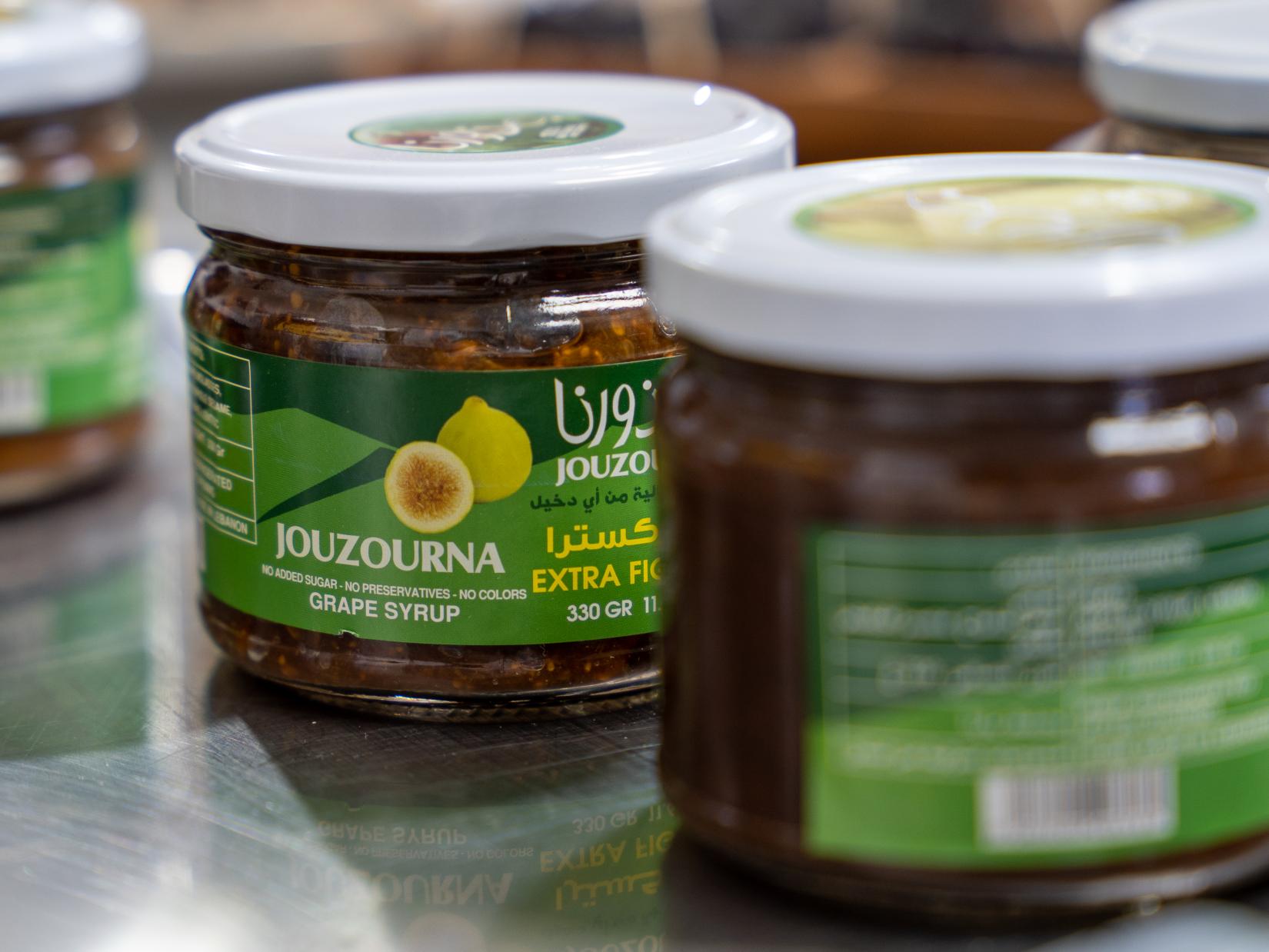
“I wanted to preserve my ancestors’ pantry-making techniques but wasn’t able to do that because I lacked the equipment and appropriate skills,” she said.
However, with the resources, and technical skills provided by the UN through the Productive Sector Development Programme (PSDP), she explained how she started producing gluten-free pantry products and expanded the scope of her business to other organic products.
The PSDP is a joint UN programme generously funded by the government of Canada under the Lebanon Recovery Fund, and co-implemented by six UN entities operating in Lebanon, namely the United Nations Industrial Development Organization (UNIDO), Food and Agriculture Organization of the United Nations (FAO), United Nations Development Programme (UNDP), International Labour Organization (ILO), UN Women, United Nations Children’s Fund (UNICEF).
A UN Support saving small-sized business during times of crisis
Dounia lacked appropriate equipment, such as agricultural and manufacturing materials, in addition to financial resources that would allow her to pursue and expand her work in agriculture and organic manufacturing. “When I started working in agriculture and manufacturing back in 2010, I did not have a penny, I borrowed a small amount of money that was only enough to formally register my enterprise.”
However, driven by her unwavering passion and determination coupled with the support of the UN under PSDP, she was able to stay in her hometown, Smar Jbeil, and continue with farming, manufacturing, and distribution activities with the help of five women whom she hired on a full or part-time basis to help her undertake agricultural and food production work. Dounia distributes her products in Smar Jbeil and sells them in four shops specializing in organic products in Beirut, Jounieh, and Jbeil.
The UN support to Dounia through this joint program came at a time when Lebanon was reeling under the impact of the Covid-19 outbreak, an unprecedented economic and financial crisis, and the devastating effects of the Beirut port explosions.
With the active engagement of relevant UN agencies and local partners, including ministries, private companies, and civil society organizations, the PSDP has become a safe haven for farmers and small-scale enterprises based in Lebanon as it helped them improve their capabilities in agricultural production and processing and adopt environmentally friendly agricultural practices.
“This joint UN development project, generously funded by our long-time partner Canada, is very timely amidst increased concerns regarding food security in Lebanon and the unfolding economic crisis, which is making access to financing difficult, the import of raw materials very costly, and the trade operations disrupted”, said the UN Deputy Special Coordinator, Resident and Humanitarian Coordinator for Lebanon, Imran Riza. “During my field visits, I saw firsthand how PSDP has been providing new sustainable ways of doing business with women at the forefront. The project helped young women and men to unleash their full potential in businesses by strengthening their local production, maximizing their productivity while applying new technologies, and adopting environmentally friendly practices”, he added.
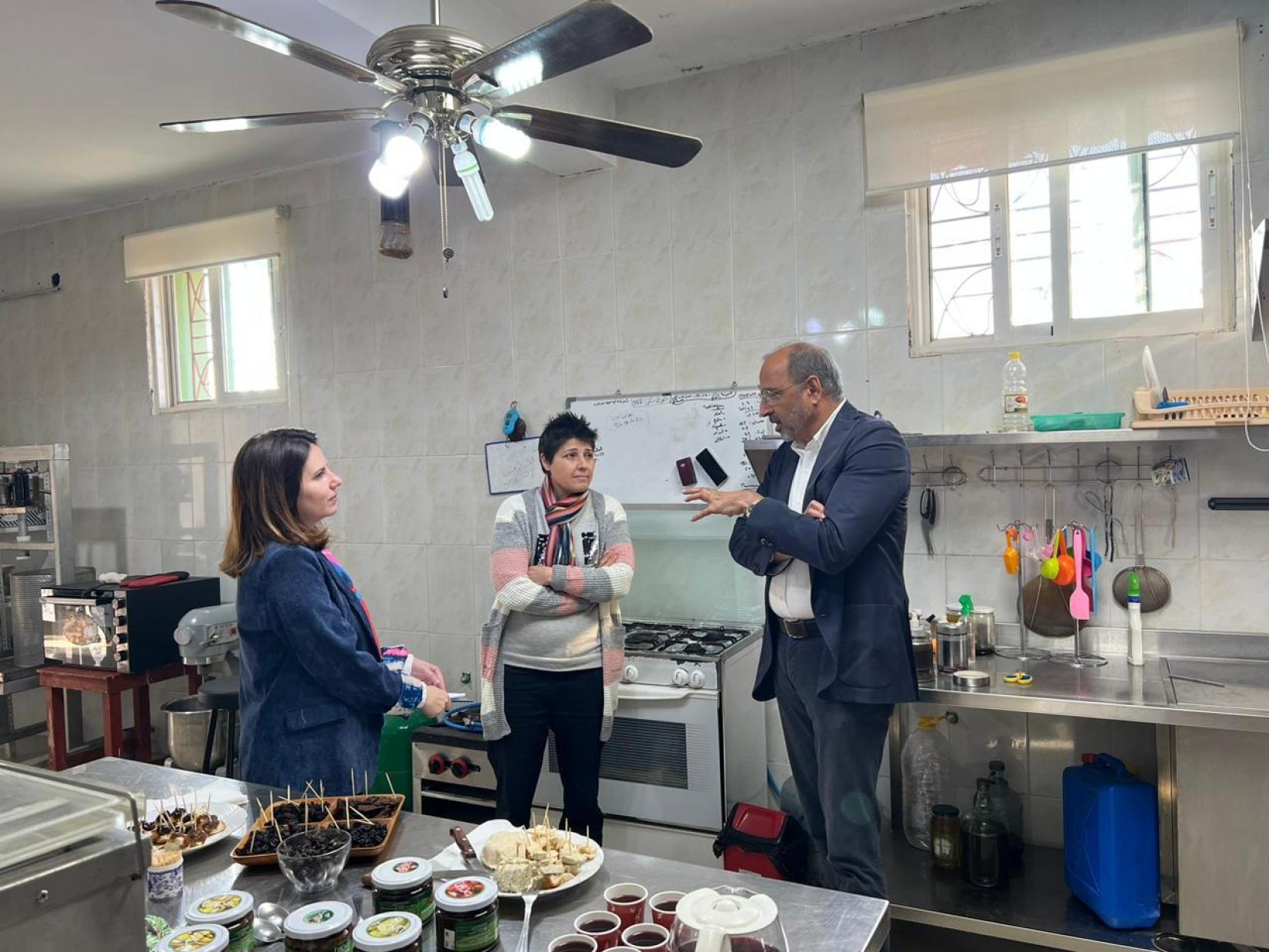
Dounia soaked up every bit of knowledge, nurturing her passion and fueling her drive to grow. The UN support was not limited to the first training on accounting and enterprise management that she took after filling out that online questionnaire, but went beyond that to include other training, such as those related to fruits and vegetables, dehydrating techniques, and export skills. This is in addition to licensing methods that allowed her to obtain an industrial license from the Ministry of Industry with UNIDO’s support.
To expand her managerial skills, she also took part and benefitted from specialized training on entrepreneurship and learned how to pitch a business idea in no time. This culminated in being awarded the best environmental business by ILO and provided with training that helped her better use the grant and monitor the quality of her products. “This boosted my self-esteem,” she ascertains.
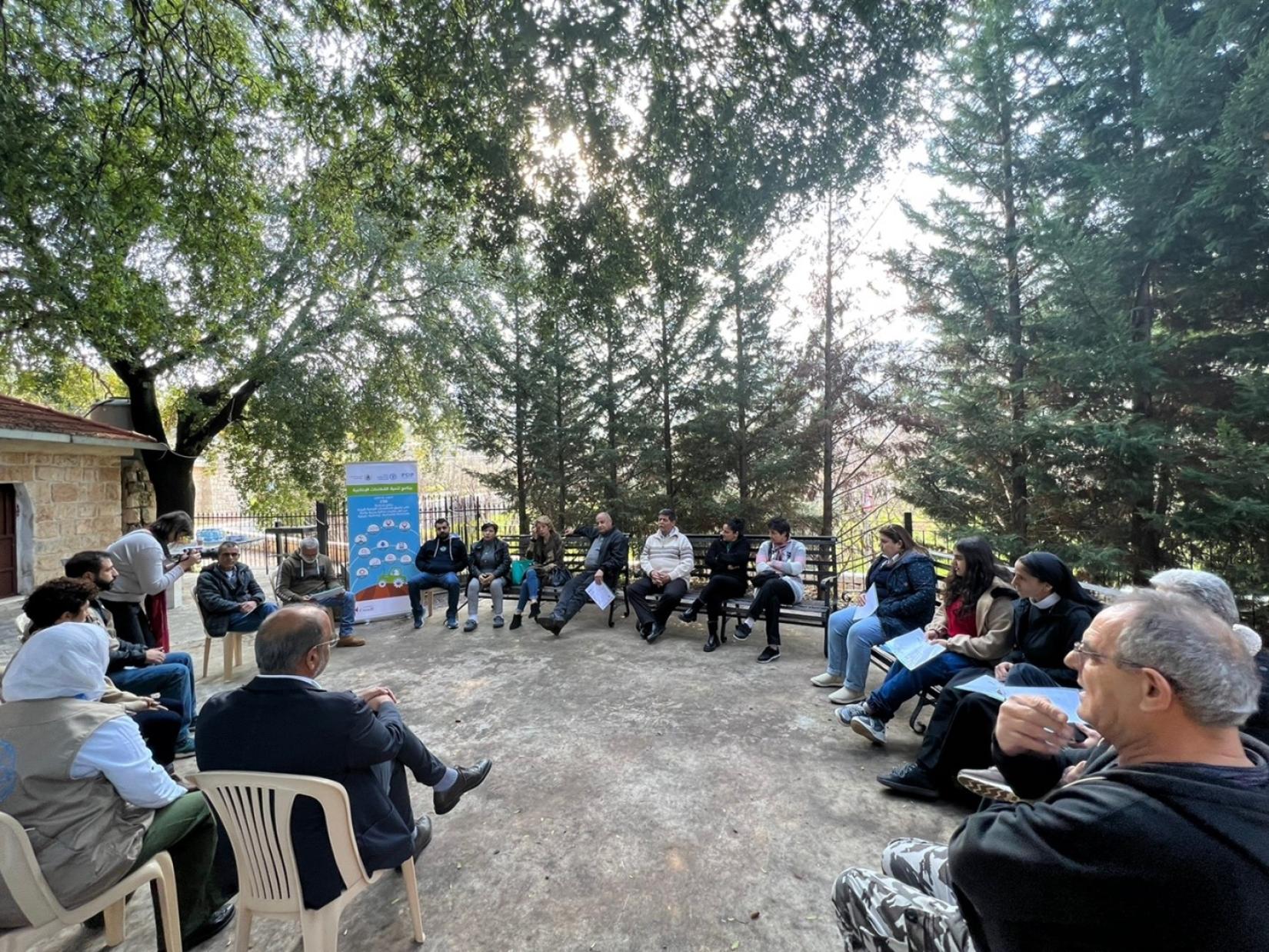
What helped Dounia most develop her agricultural processes was the technical trainings offered by FAO on Good Agricultural Practices (GAP) at the “Farmers Field School”, and the agricultural inputs and personal agricultural protection equipment that enabled her to apply these practices. FAO is also helping Dounia to obtain a certificate in organic agriculture for each of her agricultural and food crops as per the European Union-organic regulation 2018/848, which enabled her to enter the market and sell her products.
Concurrently, since empowering women is at the core of the PSDP overarching goals, UN Women provided a series of soft skills trainings on business leadership, management, self-confidence, conflict resolution, and response to sexual harassment, from which Dounia and other businesswomen benefited. Towards the end of the program, Dounia found herself equipped with the very essence of progress that meet her business aspirations.
“Women in the productive sectors in Lebanon have great potential, and with our partners, Canada aims at supporting women-led micro and small enterprises, be it on the technical and/or financial levels, to fulfill their abilities,” said Mr. Jamie Schnurr, Head of Cooperation at the Government of Canada in Lebanon, clarifying that Canada has been in the sector of women’s economic participation for over five years now in Lebanon. “Canada is proud of the achievements under the Productive Sectors Development Programme (PSDP),” he ascertained.
From producing two products to producing around 40 products and building new friendships
Dounia faced various challenges at the beginning of her career. The spoilage of her products in the absence of preservatives and the lack of encouragement from her environment, in addition to the competition of foreign products for her local products, have seriously challenged her. However, she perceived these as obstacles to be conquered rather than barriers to her success: She persevered in her work, enhanced her technical capabilities, challenged her patriarchal surroundings, and continued to develop her products and expand her work.
As her skills enhanced, her business flourished too. She was able to streamline her farming and production processes and increase the quality and quantity of her products. “When I started in 2010, my production was limited to two types of products, whereas now I am producing around fourty different products,” says Dounia with a sense of pride. "Thanks to this program, I no longer need to visit the Chamber of Commerce and Industry in Tripoli to rent equipment," she explains, because the UN has provided her with the necessary equipment, and skills that facilitated her work, such as the dehydration technique used in preparing pantry.
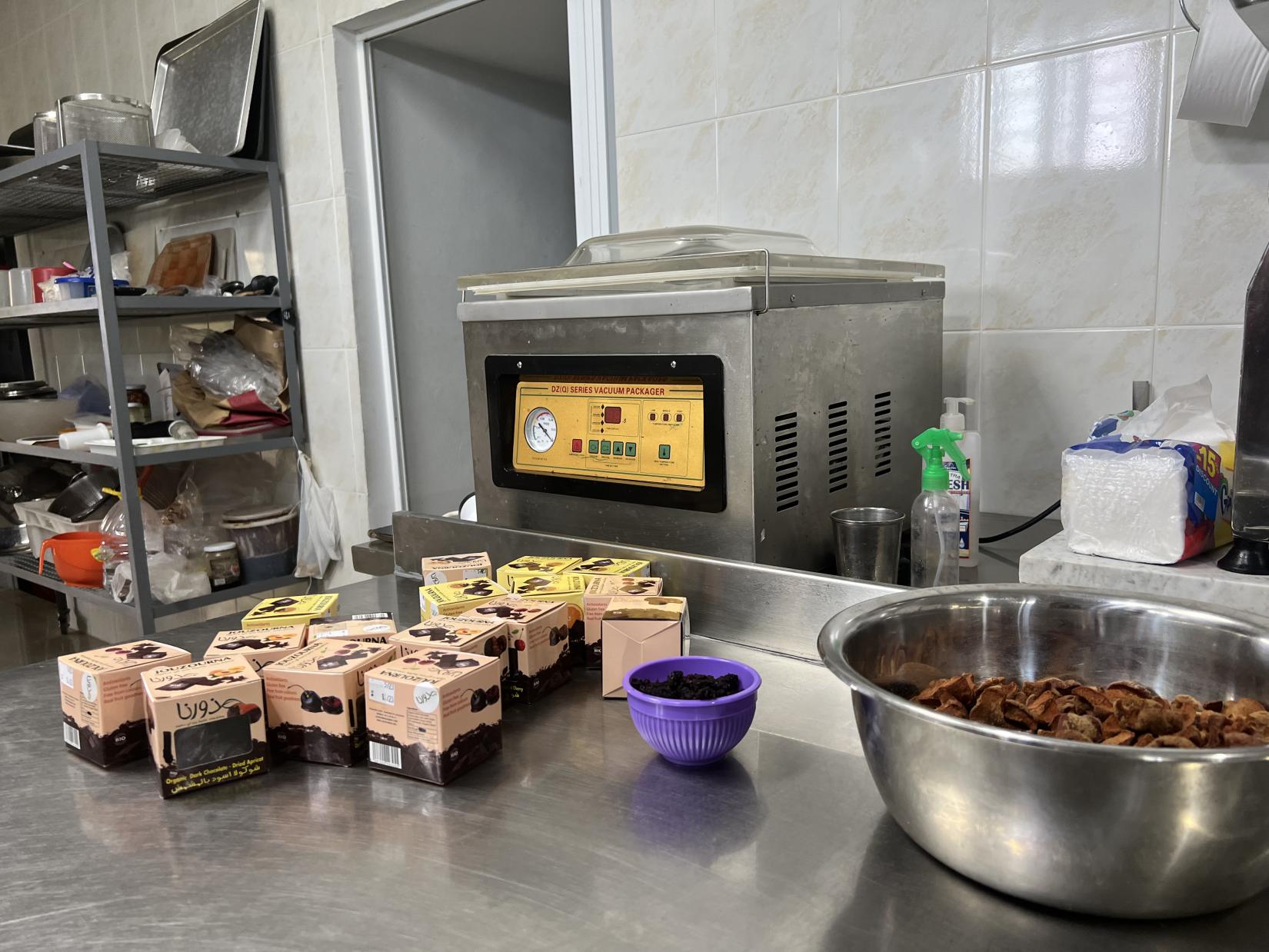
In addition to the skills that Dounia acquired from the trainings, she confirms that the exchange of experiences and knowledge with other participants has benefited her in various fields. "I built friendships with other women who benefited from the program's activities; we even started buying raw materials from each other," she assures. The impact of these trainings was also reflected in the way she works, as she gained knowledge that enabled her to better understand the market, the different ways of competition, and pricing, in addition to calculating the cost and sales.
“It is all about the will”
Dounia asserts that her persistence and determination will not stop, but quite the opposite. She will continue to progress and work on new products, expressing her gratitude for the consistent support of the United Nations and the continuous motivation to move forward.
Dounia's inspiring journey from being a simple farmer to a beacon of success provides an example of how the UN Productive Sector Development Programme is contributing to accelerating the progress towards the Sustainable Development Goals (SDGs) that Lebanon, among other countries, has committed to implement by 2030.
Her journey also demonstrates the impact of this program on empowering women like Dounia and other women beneficiaries, whose products secured a prominent place in the Lebanese market. Another sheer example of how PSDP helped support the productive sectors in Lebanon amid the unfolding crisis and consequently contribute to Lebanon's economic recovery.
“To all women out there who have businesses or even business ideas, do take the initiative and implement your ideas. Do not fear taking risks. You will surely get your way if you believe that the key to success is having a strong will and the appropriate resources and opportunity” – Dounia concludes with confidence.
This story was written by Ms. Nadine Abi Zeid Daou, National Information Officer at RCO Lebanon/UNIC Beirut, with the support of Ms. Marwa El-Hajj, short-term communications specialist at UNIC Beirut. The video was produced by Mr. Georges Roukoz from UNIC Beirut.






